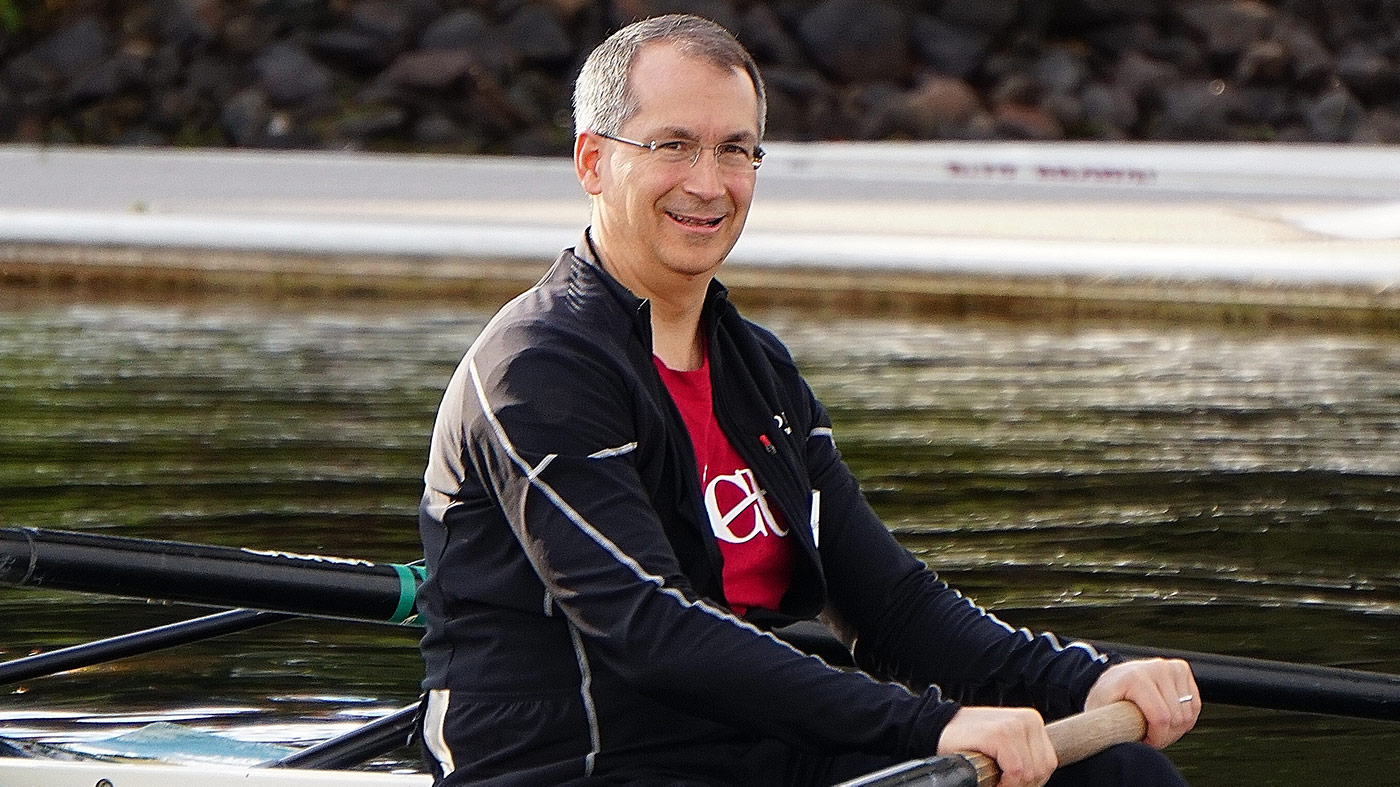This story originally appeared in Lawyer, Spring 2017.
Folks in his hometown of Aberdeen, Washington, used to joke that Benson Porter was named after his family's store, Benson's Office Supply. The truth is that the name was already in place when his grandfather bought the business in the late 1940s and he never bothered to change it, since Benson just happened to be his middle name. The family name was then passed down from father to son to grandson.
But in many ways, growing up in a family business affected him more than a name ever could.
Porter, who now serves as the president and CEO of BECU, said his dad and grandfather were the kind of small business owners who valued community involvement. Working in the store as a teenager, he developed a fondness for being the little guy.
"Throughout my career, I've intentionally chosen to be the disruptor," he said. "I like the nontraditional business model to offer consumer choice and I believe it strengthens the fabric of the community."
At BECU, that contrary business model is helping the home-grown credit union thrive.
Formerly known as Boeing Employees Credit Union, BECU recently surpassed 1 million members and is the fourth-largest credit union in the country. Though focused in the Puget Sound region, BECU has members in all 50 states thanks to online banking, as well as new branch offices in Spokane and Charleston, South Carolina.
Porter, a 1992 graduate of the law school, took the helm of BECU in 2012. His deep roots in Washington state (fun fact: he was a high school classmate of Nirvana front man Kurt Cobain) drew him back to the region from Palo Alto, California, where he had served as CEO of First Tech Federal Credit Union.
"At a for-profit bank, the management has to weigh getting a return for the shareholders versus delivering more value to customers. The more money I put over here is less money over there, right?" he said. "But in a cooperative, the owners and the customers are the same person so the full focus is on keeping the membership happy."
BECU returned $175 million to its members in 2016. It also offers its highest interest rates on Early Saver accounts; kids earn 6% APR on the first $500 so they learn the value of savings. Staff members volunteer to teach financial literacy in regional high schools. And BECU donated $3.5 million in 2015 to worthy causes suggested by its members.
This "people helping people" approach gets even better when it's paired with technology, Porter said.
"Our largest branch office right now is that," he said, pointing to his smartphone. In the same way that technology is changing the traditional practice of law, so is it changing how people manage their money.
Though it might not seem obvious, Porter said his law school education was vital to his success in finance. Learning how to think critically - how to be inquisitive and ask good questions - sets a person up for success in any endeavor.
"What's been interesting for me is that the technology isn't the disruptor; it's just what enables new applications. People have to figure out how you apply those tools to current problems," he said. "Those are the folks who are in a position to be disruptors because they're seeing how you apply one thing in the context of another."
Porter attended night classes at the law school's campus in Tacoma, commuting from Olympia, where he worked in the state legislature. Putting himself through law school, he once told a business magazine, was his proudest achievement.
"Classes started at 6 and work ended at 5. It was just enough time to microwave a burrito or a corn dog, get in the car, and drive to Tacoma," he said. "I took two classes in the evening and the weekends were spent reading cases. You become exceptionally good at time management."
In addition to time management, he also learned how to be an advocate - how to make an argument and then back it up with solid proof points.
"Yes, I'm the chief executive but I'm also the chief advocate for the organization," he said "I have to be able to put together a persuasive case for why BECU is the best option for people. It's the advocacy skills learned in law school that help you put an argument together."

